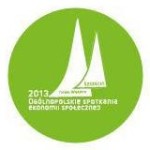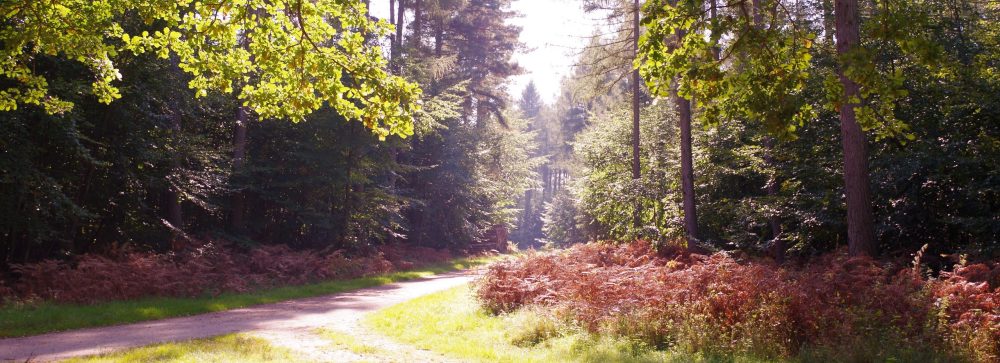In August I start working for the Pirate Party’s parliamantary group in the Berlin Chamber of Deputies as a scientific assistant for energy policy, with focus on the Enquete-Commission “Neue Energie für Berlin – Zukunft der energiewirtschaftlichen Strukturen” [New Energy for Berlin – the future of the energy industry structures]. I am so excited about the challenge we are going to handle in Berlin – transition to renewables and more energy democracy! I hope for a good and fruitful cooperation with all involved in this process! I will publish soon more information about my new work and the work of Enquete-Commission.
Category Archives: Energy security
Speech during the Intensive Programme of the MA in Euroculture “European Environments: How a New Climate is Changing the Old World”
The Intensive Programme of the MA in Euroculture â€European Environments: How a New Climate is Changing the Old Wolrd†is going to take place at the Jagiellonian University in Cracov from 22 to 29 June. I am going to give a speech during the opening panel: “The Climate of European Politics”. The title of my speech is: “Bringing energy to the people: what Poland, Europe and the world really needâ€.
Some European states and the European Union are widely seen as leaders in global environmental issues. Various European states have gone furthest in moving toward sustainable energy policies; EU environmental standards are among the most stringent in the world. But the politics surrounding climate change are highly complex. Within Europe, there are wide differences among European states’ responses to environmental change, and in how voters and political leaders perceive the issue. Increased public awareness of the dangers of climate change does not seem fundamentally to have changed voting behavior on the national or European level. On the global level, complex issues of political, economic, and soft power make it unclear whether the EU is really able to offer global leadership in promoting sustainable development.
Here students are invited to explore the issues and themes in which European integration, international politics, and global environmental issues meet and intersect. How does climate change affect the EU’s relations with, for example, China, Russia, Brazil, or the United States? How is the warming of the Arctic (raising the prospect of ice-free summers in the near future) affecting European energy, security, and trade policy? Are there European success stories like international cooperation in cleaning up the Rhine, or the development of European emission standards that can inspire transnational environmental cooperation elsewhere? Or does Europe’s current crisis undermine the Union’s ability to take up a leadership role? Does the rest of the world even want such leadership? Within the EU, can environmental crisis be a force that deepens European integration, or only a further strain on the Union? How, for example, will the EU respond to the expected influx of so-called climate refugees, driven from their homes by rising sea levels or desertification? What links Europe’s financial crisis and the crisis of European institutions to the problems of climate change? Could so-called ecological economics offer fresh solutions to the crisis of the eurozone? Finally, how can we best understand the interplay of local, national, European, and global forces that drive European governments’ responses (or lack thereof) to ecological concerns?
More information about the conference as well as its programme are available on the website of the Intensive Programme of the MA in Euroculture.
Panel discussion “Renewable jobs – jobs in renewables: facts and myths” during the congress organized by the Greens/ EFA in Warsaw
 The panel discussion “Renewable jobs – jobs in renewables: facts and myths” is going to take place during the participatory debate about Poland and its future “Citizen’s energy for a good climate” organized by the Greens/ European Free Alliance (Greens/ EFA) in the European Parliament from 15 to 16 November in Warsaw.
The panel discussion “Renewable jobs – jobs in renewables: facts and myths” is going to take place during the participatory debate about Poland and its future “Citizen’s energy for a good climate” organized by the Greens/ European Free Alliance (Greens/ EFA) in the European Parliament from 15 to 16 November in Warsaw.
What is the aim of this panel? As the organizers wrote:
In the midst of the crisis Europe is in need for new innovative sustainable strategies for jobs creation. For the Greens in Europe, investment in renewable energy is clearly one of the solutions to be implemented. There are many good examples across the EU to follow. Together with the public we will be looking at the solutions which could be applied in Poland and how to unleash the potential of green jobs in Poland.
During the panel discussion I am going to present the potential for jobs creation in the renewable energy sector in Poland as well the German experiences in this field. I am going also to discuss the potential for a transfer of these experiences to Poland.
More information about the panel discussion as well as the whole event is available on the website of the Greens/ EFA.
Presentation from OSES 2013
 The power-point presentation (in Polish) that I prepared for my lecture during the panel discussion “Przedsiebiorczosc spoleczna a ochrona srodowiska, ekologia i energia odnawialna” (Social entrepreneurship and environmental protection, ecology and renewable energy) during the 7th Polish Nationwide Meetings of Social Economy OSES 2013 in Nowe Warpno on 20 September is available here:
The power-point presentation (in Polish) that I prepared for my lecture during the panel discussion “Przedsiebiorczosc spoleczna a ochrona srodowiska, ekologia i energia odnawialna” (Social entrepreneurship and environmental protection, ecology and renewable energy) during the 7th Polish Nationwide Meetings of Social Economy OSES 2013 in Nowe Warpno on 20 September is available here:
Prezentacja Karolina Jankowska OSES 2013
More information about the content of the panel is available on the website of the Heinrich Böll Foundation, Warsaw office, and on the website of the panel chair, Ewa Kos.
Panel discussion during the 7th Polish Nationwide Meetings of Social Economy OSES 2013 in Nowe Warpno
The panel discussion, organised by the Heinrich Böll Foundation, Warsaw office, with the title “Przedsiebiorczosc spoleczna a ochrona srodowiska, ekologia i energia odnawialna” (Social entrepreneurship and environmental protection, ecology and renewable energy) is going to take place during the 7th Polish Nationwide Meetings of Social Economy OSES 2013 in Nowe Warpno on 20 September.
I am going to present the German experiences with energy transition on the local level and the development of civic engagement and energy democracy in this country (f.ex. the emergence of energy cooperatives and civic renewable energy projects) as well as to discuss the potential for the transfer of this experiences to Poland.
More information is avaibale on the website of the panel chair, Ewa KoÅ›, member of Parliament of the Voivodeship West Pommerania, on the website of the Heinrich Böll Foundation as well as on the website of the 7th Polish Nationwide Meetings of Social Economy.
